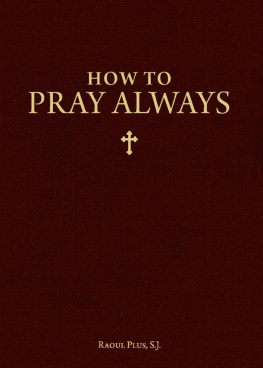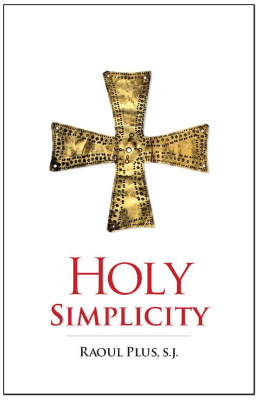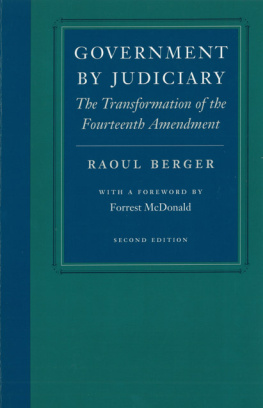Fr. Raoul Plus - How to Pray Well
Here you can read online Fr. Raoul Plus - How to Pray Well full text of the book (entire story) in english for free. Download pdf and epub, get meaning, cover and reviews about this ebook. year: 2013, publisher: Sophia Institute Press, genre: Religion. Description of the work, (preface) as well as reviews are available. Best literature library LitArk.com created for fans of good reading and offers a wide selection of genres:
Romance novel
Science fiction
Adventure
Detective
Science
History
Home and family
Prose
Art
Politics
Computer
Non-fiction
Religion
Business
Children
Humor
Choose a favorite category and find really read worthwhile books. Enjoy immersion in the world of imagination, feel the emotions of the characters or learn something new for yourself, make an fascinating discovery.
- Book:How to Pray Well
- Author:
- Publisher:Sophia Institute Press
- Genre:
- Year:2013
- Rating:5 / 5
- Favourites:Add to favourites
- Your mark:
- 100
- 1
- 2
- 3
- 4
- 5
How to Pray Well: summary, description and annotation
We offer to read an annotation, description, summary or preface (depends on what the author of the book "How to Pray Well" wrote himself). If you haven't found the necessary information about the book — write in the comments, we will try to find it.
How to Pray Well — read online for free the complete book (whole text) full work
Below is the text of the book, divided by pages. System saving the place of the last page read, allows you to conveniently read the book "How to Pray Well" online for free, without having to search again every time where you left off. Put a bookmark, and you can go to the page where you finished reading at any time.
Font size:
Interval:
Bookmark:
How to Pray Well
Raoul Plus, S.J.
SOPHIA INSTITUTE PRESS
Manchester, New Hampshire
Other books by Raoul Plus from Sophia Institute Press:
Holy Simplicity
How to Pray Always
Progress in Divine Union
This English translation from the French of How to Pray Well was originally published by Burns, Oates, and Washbourne Ltd., London, in 1929. This 2009 edition by Sophia Institute Press includes minor editorial revisions.
Copyright 2009 Sophia Institute Press
Printed in the United States of America
All rights reserved
No part of this book may be reproduced, stored in a retrieval system, or transmitted in any form, or by any means, electronic, mechanical, photocopying, or otherwise, without the prior written permission of the publisher, except by a reviewer, who may quote brief passages in a review.
Sophia Institute Press
Box 5284, Manchester, NH 03108
1-800-888-9344
www.SophiaInstitute.com
Nihil obstat:
John V. Simcox,
Censor deputatus Imprimatur :
Edm. Can. Surmont,
Vicarius generalis
Westmonasterii, May 9, 1929
[Comment bien prier. English]
How to pray well / Raoul Plus.
p. cm.
Originally published: London : Burns, Oates & Washbourne, 1929. With minor editorial revisions.
Includes bibliographical references.
ISBN 978-1-933184-55-5 (pbk. : alk. paper) 1. Prayer Christianity. I. Title.BV215.P5413 2009
248.32 dc222009017533
09 10 11 12 13 14 10 9 8 7 6 5 4 3 2 1
Editors note: The biblical quotations in the following pages are taken from the Douay-Rheims edition of the Old and New Testaments. Where applicable, quotations have been cross-referenced with the differing names and enumeration in the Revised Standard Version, using the following symbol: (RSV =).
Book One
The Prayer of Adoration
Chapter One
The Most Perfect Prayer
We may pray to adore, to give thanks, to implore pardon, or to ask for the graces we need. But whereas, in the last three cases, our thought comes back to ourselves, in the first, we forget ourselves entirely and think of God alone.
If I give thanks, it is because I have received; if I implore pardon, it is because I have sinned; if I ask, it is because I need. I am never absent from my prayer. But in the prayer of adoration, the only person considered is God, to whom I pray. There is no intrusion of the creature. He who prays is not mentioned; he disappears utterly. He does not think of himself; he counts for nothing: We praise Thee, O Lord; we adore Thee, O Lord; we bless Thee, O Lord; Glory be to G od on high; O Lord, we sing Thy glory.
I do not suggest that this is the only kind of prayer that we must offer. It will be seen later that the prayer of thanksgiving, the prayer for pardon, and the prayer of petition are excellent, legitimate and, by reason of our very condition as creatures, quite necessary. But I say that this kind of prayer is in itself the most perfect; it is the prayer that gives greatest glory to God, that in which we most truly fulfill our duty as creatures, since thereby we unreservedly devote the whole of ourselves to singing the praises of our Creator. Moreover, by this prayer we most truly fulfill our function as intelligent and loving creatures, since the canticle of praise that ascends from our hearts shows that we appreciate what God is in Himself, and how much He deserves that we should venerate and adore Him.
Some, in view of the excellence of the prayer of adoration, have contended that prayers which involve the element of self (thanksgiving, prayer for pardon, petition) are to be excluded. They reason in this way: pure love is the best; hence, we must keep only pure love, and any spiritual act in which self enters, however secondarily and imperceptibly, is to be regarded as an evil love and almost a sin.
This is a spirituality which ignores the facts of human nature. Pascal used to say that if you try to make man an angel, you make him an ass. We are not angels, but frail creatures of flesh and blood. We are not yet dwellers in the land where the eternal Sanctus resounds; and if we give a thought to things other than God, we are not doing wrong. It is not wrong to make known our wants, to ask for mercy, and to give thanks for blessings received. On the contrary, this is precisely what a creature might normally be expected to do when he is in need, when he has sinned, when he has been loaded with benefits.
This being made quite clear, it still remains true that many Christians, even good Christians, do not make sufficient use of the prayer of adoration. We instinctively ask God for favors and implore pardon for our sins; but there is a regrettable tendency to forget praise and adoration. It is not wrong, it is even advisable and necessary, to think of ourselves. But sometimes, at least, we might think of God only. The Quietists were wrong to say that we must always do this; but we may try to do it occasionally, because such prayer is the most perfect practice of the Christian religion.
It is conceivable that someone, without excluding other forms of prayer as being evil, may rightly decide that he will not use them himself, but devote his attention for long periods or even habitually to the prayer of adoration. After being for a long time in close touch with God, he loses the desire to ask anything for himself. His petition is all for God. In the Our Father he willingly pauses in the middle: Thy kingdom come, Thy will be done... hallowed be Thy name. In the rest: give us... forgive us... deliver us, he has little or no further interest. He knows that God is good, merciful, infinite; that is enough for him. What need is there for him to speak to God of himself? To God he prefers to speak of God.
It is permissible to go even further. Toward the end of his Spiritual Exercises, St. Ignatius suggests to the retreatant the contemplation for divine love, and in this contemplation, first of all, thanksgiving to God for His benefits. But he advises going beyond this. God is not only what he is for you; he is what he is in Himself. He is Creator, Providence, Giver of all blessings; but before all He is God. Put aside all other thoughts, and concentrate upon this ultimate fact, this final consideration. Love God not for what He gives to us; love God for what He gives to Himself eternally, for that unceasing intercommunication between the Father and the Son, for the eternal act whereby the Father contemplates Himself, for the reciprocal love between the Father and the Son, the result of which is the eternal procession of the Person of the Holy Spirit. O beata Trinitas, O Blessed Trinity!
Be it noted, however, that we have called this the ultimate fact, the final consideration. To want everyone to have pure love and to use only the prayer of adoration is a dream, and a heretical dream at that. But it is quite another thing, when a person has reached the stage at which he has wholly decided upon perfect generosity and the complete offering of himself to God, to advise him to practice pure love, complete forgetfulness of self, and definitively, as far as is possible on this earth, to make his conversation in heaven that is, to live entirely in God.
To sum up: The prayer of adoration is very perfect, the most perfect of all, in itself. Hence, it is advisable to practice acts of it occasionally. From this, however, it must not be concluded that the other forms of prayer are to be condemned, and that we are not to give thanks or to ask pardon or benefits of God. It is an error to hold that the state of pure love is possible for all or, in an exclusive sense, desirable for everyone. But what we may conclude is that it is not surprising to find in a generous soul a strong inclination to place the prayer of praise and adoration in the forefront of the spiritual life, and that, moreover, it is desirable for Christians in general occasionally to leave the everlasting prayer of petition and to rise sometimes, and even often as the Church invites us to the disinterested prayer of praise.
Next pageFont size:
Interval:
Bookmark:
Similar books «How to Pray Well»
Look at similar books to How to Pray Well. We have selected literature similar in name and meaning in the hope of providing readers with more options to find new, interesting, not yet read works.
Discussion, reviews of the book How to Pray Well and just readers' own opinions. Leave your comments, write what you think about the work, its meaning or the main characters. Specify what exactly you liked and what you didn't like, and why you think so.









